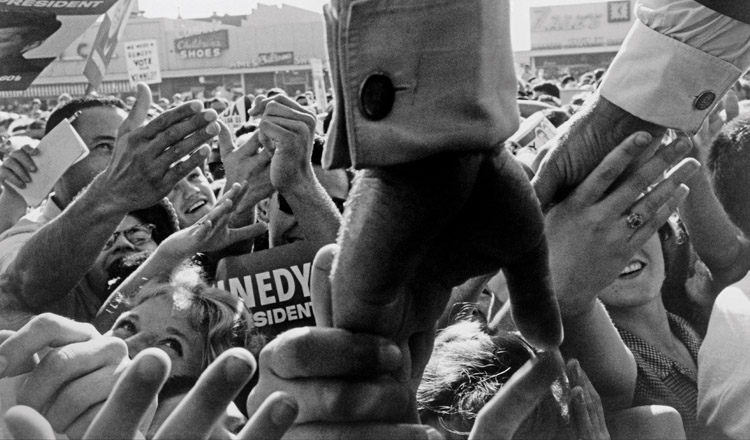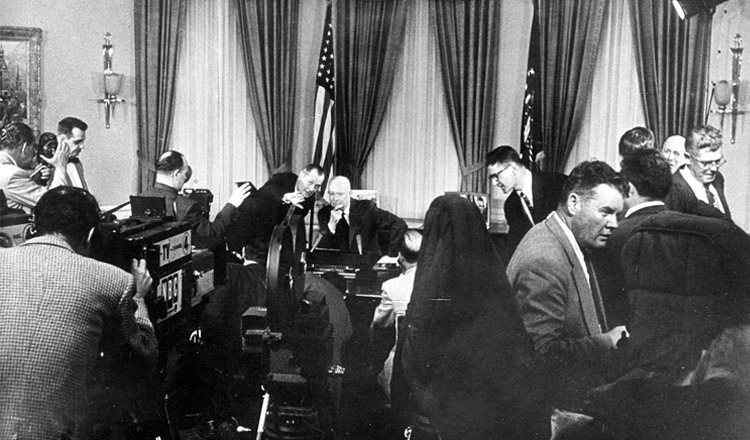Kathryn Cramer Brownell, assistant professor of history, helps interpret nearly a century of political back-and-forth played out from the radio waves to the Twittersphere.
Brownell is the author of Showbiz Politics: Hollywood in American
Political Life. Here are four quick takeaways from her research.
The Copycat Effect
If a party loses an election, they study their opponent’s media strategy and try to emulate and surpass it in the next cycle. Republicans were critical of FDR going to the radio and bypassing the press and going to Hollywood — but as soon as they were able to, they replicated that strategy and did it even better. Then JFK sees what Eisenhower does and tries to one-up him in terms of creating a celebrity personality. Nixon then studied Kennedy to do the same.
Nixon 1960 vs. 1968

Nixon is fascinating because he believed that TV made the difference in the 1960 election. He studied Kennedy’s 1960 strategy and then Ronald Reagan in the ’60s as a rising star. In his papers — there are actually documents where he’s studying his speeches where you can see his handwritten notes. “We may think this is demagoguery, but it is very effective. Reagan reaches the heart. We reach the mind. … Do we not miss an opportunity in failing to reach the hearts and not just the heads?”
Is media ever to blame for a candidate’s loss?
Richard Nixon blamed TV for his loss in 1960, but there were a lot of other factors at play. There were many other reasons JFK squeaked out a win. The media is an easy scapegoat. It’s an easy way to deflect attention from the candidate’s shortcomings or missteps.
FDR had the radio; Trump has Twitter
FDR desperately needed to connect to Americans who were devastated by the economic collapse and looking for a strong leader with a clear vision for the future. He wanted to connect to people directly and bypass his critics in the press. Over the past four years, Trump has used Twitter to bypass criticism and connect his message directly to his supporters.

